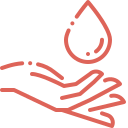Découvrez des conseils pratiques en santé, mode, beauté et bien-être pour cultiver votre bien-être au quotidien. Rejoignez notre communauté et transformez votre quotidien avec des astuces éprouvées et des informations fiables pour une vie épanouie.
Votre compagnon pour une vie équilibrée !
Explorez nos rubriques pour une vie équilibrée !
Découvrez nos catégories : Santé, Mode, Beauté, Bien-être. Trouvez des conseils pratiques, des astuces et des informations fiables pour prendre soin de vous au quotidien.

Santé
Des conseils pratiques pour améliorer votre santé physique et mentale au quotidien. Cultivez une vie équilibrée avec nos astuces.

Mode
Découvrez les dernières tendances et des conseils de style pour exprimer votre personnalité à travers votre garde-robe.

Beauté
Révélez votre beauté naturelle avec nos astuces pour une peau éclatante et des produits de beauté bios et efficaces.

Bien-être
Trouvez l'équilibre entre corps et esprit avec nos conseils pour gérer le stress, cultiver la pleine conscience et adopter un mode de vie sain.

Explorez, inspirez, agissez : votre bien-être commence Ici !
Vous méritez une vie remplie de bonheur, de santé et de beauté. Ne laissez pas les défis du quotidien vous arrêter. Poursuivez votre exploration, découvrez nos articles, nos guides et nos ressources. Et lorsque vous serez prêt(e) à passer à l’action pour améliorer votre bien-être, n’hésitez pas à nous contacter. Notre équipe est là pour vous accompagner dans votre parcours vers une meilleure version de vous-même. Cliquez ci-dessous pour commencer votre voyage vers un bien-être total !
Votre bien-être est notre priorité, et nous sommes impatients de vous aider à atteindre vos objectifs de santé, de beauté et de bien-être. Rejoignez-nous dès aujourd’hui et commencez à transformer votre vie pour le mieux.
Explorez notre univers d'articles
Bienvenue dans notre collection d'articles, conçue pour vous guider vers une vie équilibrée et épanouissante. Découvrez des conseils pratiques en santé, des tendances mode, des astuces beauté, et des stratégies pour cultiver le bien-être au quotidien.
Découvrez le potentiel de votre bien-être !
Vous avez fait le premier pas vers une vie équilibrée et épanouissante en explorant Epig en Santé. Continuez votre voyage en consultant notre plan du site pour accéder à toutes nos rubriques, articles, et ressources. Trouvez l’inspiration, les conseils pratiques et les astuces pour cultiver votre bien-être au quotidien. Votre potentiel de bonheur, de santé et de beauté n’a pas de limites. Cliquez ci-dessous pour explorer toutes les facettes de votre bien-être !